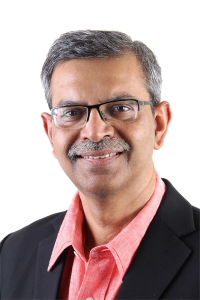Keistimewaan mana yang harus dipilih – Pandangan Praktisi Swasta

When I entered medical school, I was determined to become a specialist. Unfortunately, medical school curriculum and learning was tough and many of us were just struggling to pass exams while trying to enjoy university life with whatever minimal time left. Our objective was to pass one examination at a time until we graduated. I still harboured the ambition of becoming an independent specialist at that time. I thought running a maternity home would give me independence and so Obstetrics and Gynaecology was one of the specialities I thought I would pursue upon graduation. However, as a struggling medical student, this became a fleeting and increasingly distant thought. I remember a senior of mine who even before entering medical school had decided that he wanted to be a neurosurgeon. He went ahead and became one. He is now a successful neurosurgeon in Private Practice in Malaysia.
As a houseman I worked in only 2 disciplines namely O&G and Medicine. After that I had a short stint in surgery before becoming a medical officer in a small district hospital in Mersing. I studied for the Part 1 examination for both O&G and Medicine. Later, I chose to do O&G and I have not regretted this decision, having been in this speciality since 1988.
You, as a young medical officer may have to make a decision as to which speciality you would like to choose. Many choose specialities based on their interest in particular fields. Others follow their role models, who may be family members or a doctors under whom they have trained.
As a practicing private practitioner, I will divide specialists in private practice into 2 categories and I will call them frontline specialists and supportive specialists. Let me explain further.
A frontline specialist is a specialist who has direct contact with patients. These are the specialists whom patients look for to seek treatment. Examples of these specialities are: Medicine and its subspecialities (general medicine, cardiologist, endocrinologists, rheumatologists etc), Paediatrics, Surgery and its subspecialties, Orthopaedic surgery, Obstetrics and Gynaecology. ENT specialists, Ophthalmologists etc.
Supportive specialists are those who support the frontline specialists. Patients don’t seek them out. Examples of these specialities are Anaesthesiologists, Pathologist and Radiologist.
As an experienced private practitioner, I will give you some insights as to which category you might want to choose to practice in. Here are some of the advantages and disadvantages of the two different categories.
The advantage of being a supportive specialist is that you don’t have to go out and spend time “marketing” for patients. You can just focus on your job. When you finish your job you are free and need not think of work. As a frontline specialist, however, you not only have to do your job as a doctor, but you also have to spent time pronoting yourself. This may include giving lectures, going out to meet general practitioners, be active in social media and societies so that other doctors and the public will be aware of you. A considerable amount ot of time is spent doing this. This is time taken away from your family and leisure. The management of your hospital will never value this time spent.
The second advantage of being a supportive specialist is that you can take time off and no one will notice it. Your patients will not miss you and when you come back you can fit in to your routine without any loss of income. The frontline specialist will not be able to take extended leave because he will loose his patients to his competitor if he is not around for a long time.
The third advantage of a supportive specialist is that you can easily move to another hospital or town if you want without much loss of income. A frontline specialist who has invested his time and energy in a particular hospital or town will find it difficult to move from his existing hospital because he has created a large following and that is an asset which he will find difficult to give up. If he moves, he will have to start all over again in the new hospital. For this reason many frontline specialists remain in the same place for a long time.
The fourth advantage of a supportive specialist is that you can get immediate income on joining a hospital. Let me explain how this works. Most hospitals have a system whereby patients and frontline specialist do not choose their supportive specialists. Patients are just sent to them on a rotational basis. As such a “new” supportive specialist will get patients as soon as he joins the hospital.
Now lets look at what might be considered the disadvantages of being a supportive specialist.
The first disadvantage is that, just when you find yourself comfortable with your work and income, the hospital will bring in another specialist in your speciality and thus immediately diluting your workload. The same can also happen to a frontline specialist but because patients look for them, it is more difficult for the hospital to divert patients to the newcomer. So, the income of a frontline specialist is more secured than a supportive specialist.
The second disadvantage is that in some hospitals, frontline specialist requests the services of supportive specialists. When this happens, at times, frontline specialists can abuse supportive specialists. For example a new anaesthetist needs to be always ready to support surgeons when called upon even if he is on leave, not on call, day or night. In order to establish himself, he has to be available to the surgeons at times when his senior colleagues are not keen to do the case especially when the request is during odd hours.
The third disadvantage of being a supportive specialist is that, it is also much easier for the hospital to terminate your services if here are disputes. As a supportive specialist you are dependent on the hospital for your patients. Your replacement can easily fit into the myriad of the services provided. I have seen this being done to an anaesthetist whose contract was terminated because the hospital management had a dispute with him. As for frontline specialists, the management will think twice before terminating their services because when he leaves, some of his patients will follow him and that constitutes a loss of income to the hospital. So if you are a supportive specialist you need to be “accomodating” to the hospital management and the frontline specialists in order to survive in Private Practice.
Most of us choose a speciality because of passion. We want to be in a speciality, which will drive us even on our worst days. This article is written to make you aware of the difference between these 2 categories. These are well known facts to all private practitioners but rarely openly talked about. Knowing the advantages and disadvantages of each category will give you a better understanding of where you stand when you select a speciality and when you ultimately move to private practice.
Selva
Sevellaraja Supermaniam
13/4/2021






